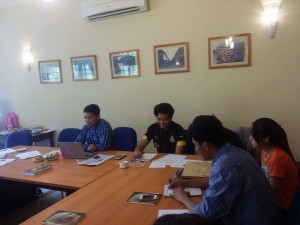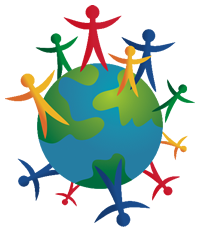Summary of Public Talk at Politikoffee by President of The CEROC
First of all, let me clarify few things:
- I do frankly appreciate Politikoffee and all group members who are very energetic, savvy, bravery, and outstanding.
- The CEROC is a neutral organization employed by volunteers to advocate for the rights to vote of all Cambodians overseas. It has no political affiliation to any body or party.
- My presentation today is solely my personal view and finding. It doesn’t represent view and finding among team members entirely.
- The presentation session is trying to be fun, fast and functional. Please, feel free to interrupt me by raising your hand if you have concerns or to ask for clarification. Please, don’t forget to shortly introduce yourself by: telling name and your background.
- I do reserve my position to answer question(s) that I know them best and not-answer the question(s) that I don’t know, by saying “I don’t know”.
Why rights to vote matters for Cambodians overseas.
- Pragmatically speaking, Cambodians overseas have no matter or problem at all. Those are very independent and making their living through their own hard working and no worry about accountability and transparency towards tax-payers and citizens in Cambodia. In contrasts, their contributions and nondetachable social linkage have surely engaged a responsible government to arrange space for them to exercise right to vote in Cambodia elections. Other thing, they have already enfranchised full right to vote in Cambodia elections but it is just the affiliated political organizations in Cambodia that have not disenfranchised them.
- So what are matters and problems? Two things to be considered:
1. Legal aspects: Cambodia constitution (article 34: Khmer citizens of both sexes shall enjoy the right to vote and to stand as candidates for the election. Khmer citizens of both sexes, at least eighteen years old, have the right to vote. Khmer citizens of both sexes, at least twenty-five years old, have the right to stand as candidates for the elections of the members of the National Assembly. Khmer citizens of both sexes, at least forty years old, have the right to stand as candidates for the elections of the members of the Senate. Provisions restricting the right to vote and the right to stand as candidates for the elections shall be determined by the Electoral Law.) and the Universal Declaration of Human Rights of the United Nations, article 21 (right to vote: The will of the people shall be the basis of the authority of government; this will shall be expressed in periodic and genuine elections which shall be by universal and equal suffrage and shall be held by secret ballot or by equivalent free voting procedures.
2. Economic and social aspects: remittances of about 500 millions per year pouring into Cambodia from approximate 450,000 Cambodians permanently living abroad and 600,000 Cambodians temporarily working abroad. The belonging feeling and attachment to birthplace, languages, and culture has played important role as an nondetachable linkage.
What’s the CEROC?
– It is Commission for Election Rights of Overseas Cambodians. The birth of this organization is too hilarious because I (myself) was invited to vote by a Phillipino friend. He asked me what date is your election day? I proudly responded to him that “July 28, 2013” and he replied “congratulations”. In reality, I must not tell him a lie because as one of the Cambodians overseas, I could not vote in Cambodia elections. I am indebted to this memory and the memory was always embedded in my head. So around February, I initiated to talk with many close friends about this intent, and we began with simple activity is to ask among our siblings and close friends about their opinions and to sign petition to the Uns. First, we focused mainly on diaspora communities members, but later we expanded to migrant workers, students, and government officials. Adding to petition campaign, we are working to conduct researches and publications for the near future.


